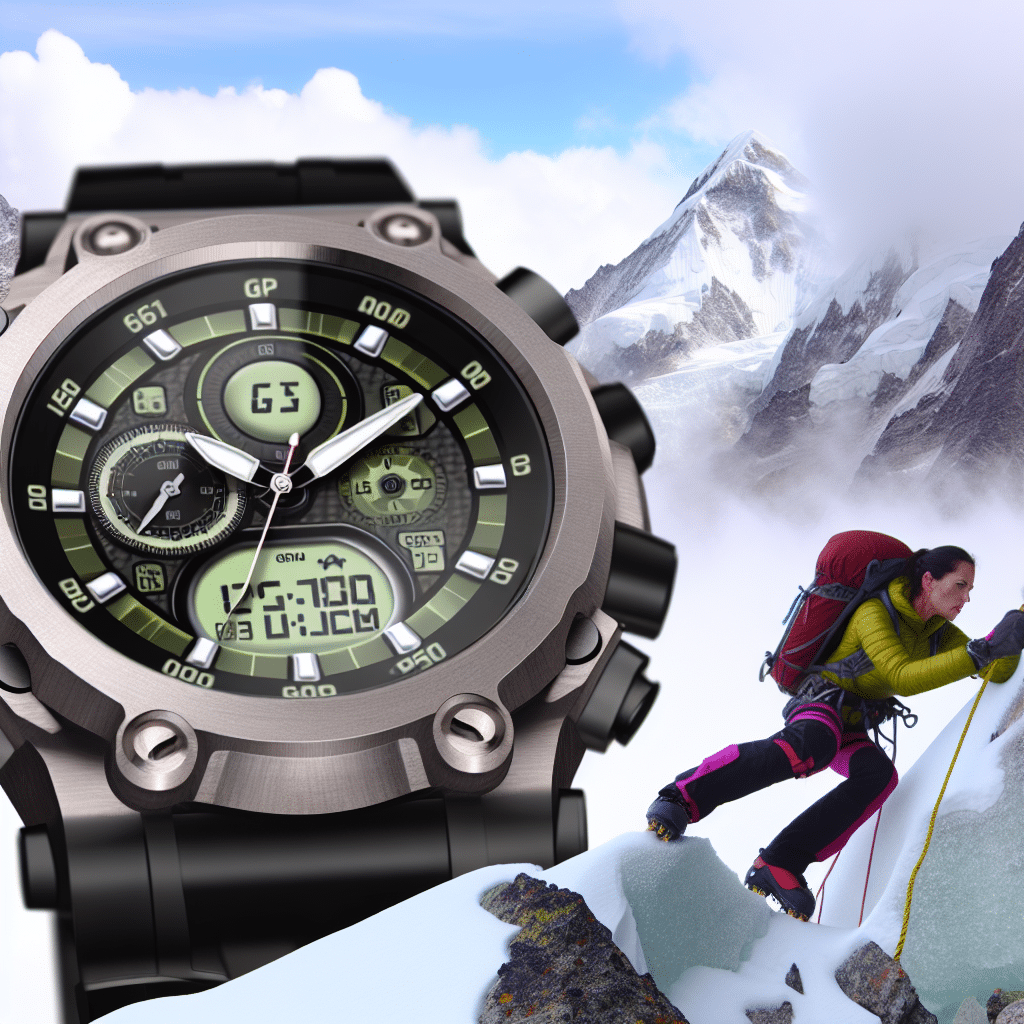Mountaineering is an exhilarating pursuit that challenges both body and mind. The thrill of conquering peaks and exploring remote landscapes draws adventurers from all corners of the globe. However, the demands of mountaineering also require specialized gear to ensure safety and success. One of the most vital pieces of equipment for any mountaineer is a reliable watch. In this comprehensive guide, we’ll dive deep into the world of mountaineering watches, exploring their essential features, why they’re crucial, and what to consider when choosing one.
Why Are Mountaineering Watches Essential?
Mountaineering watches are more than just timepieces; they’re multi-functional tools designed to assist climbers in the most challenging conditions. Here’s why they are indispensable:
Navigation and Orientation
Mountaineering watches often come with built-in GPS and GLONASS capabilities, allowing climbers to navigate with precision. This is particularly important when traversing unfamiliar terrain or during whiteout conditions where traditional map and compass might fail.
Weather Monitoring
Advanced mountaineering watches can monitor atmospheric pressure, which helps in predicting weather changes. Sudden drops in pressure can indicate approaching storms, giving climbers the critical information to seek shelter or descend to safer altitudes.
Altitude Measurement
Knowing your exact altitude is crucial for both navigation and health monitoring. Many mountaineering watches feature altimeters that provide real-time altitude data, helping climbers track their progress and manage the risks associated with high-altitude environments, such as altitude sickness.
Tracking Physical Performance
Physical fitness is paramount in mountaineering. These watches often include heart rate monitors, step counters, and other fitness tracking features to help climbers stay aware of their physical condition, ensuring they don’t push beyond their limits.
Top Features to Look for in a Mountaineering Watch
Not all mountaineering watches are created equal. Here are the key features that set the best apart from the rest:
Durability and Robustness
Mountaineering watches must withstand extreme conditions, from freezing temperatures to harsh impacts. Look for watches made with durable materials like stainless steel, titanium, or high-grade plastics. Water resistance is also a must, given the likelihood of encountering snow and rain.
Battery Life
Extended battery life is crucial, especially on long expeditions where recharging options may be limited. Some top models offer solar charging capabilities or ultra-long battery modes designed specifically for prolonged outdoor adventures.
Advanced GPS and Mapping
A high-quality GPS system is a non-negotiable. The ability to pre-load maps and navigate using waypoints can make a significant difference in efficiency and safety. Some watches even offer breadcrumb trails and the option to backtrack if you lose your way.
Popular Mountaineering Watch Models
Selecting the right mountaineering watch can be overwhelming given the numerous options on the market. Here are a few standout models known for their reliability and performance:
Garmin Fenix 6 Pro
Renowned for its comprehensive feature set, the Garmin Fenix 6 Pro includes topographic maps, multi-GNSS support, and excellent battery life. It’s designed for serious adventurers who need robust performance in extreme conditions.
Suunto 9 Baro
The Suunto 9 Baro shines with its impressive battery management system, offering up to 120 hours of GPS tracking. Its durable build and accurate altitude data make it a favorite among mountaineers.
Casio G-Shock Rangeman GW-9400
For those who prefer a more rugged aesthetic, the Casio G-Shock Rangeman is a fantastic choice. It integrates solar charging, GPS, and triple sensor technology, providing reliable data on altitude, barometric pressure, and temperature.
How to Choose the Right Mountaineering Watch
Now that you know the key features and popular models, how do you choose the best mountaineering watch for your needs? Here are some considerations:
Type of Climbs
Are you planning short hikes, multi-day treks, or high-altitude expeditions? The nature of your climbs will dictate your specific needs. For example, high-altitude climbers may prioritize advanced GPS and weather forecasting, while day hikers might focus on durability and basic navigation.
Budget
Mountaineering watches range from a couple of hundred dollars to over a thousand. Determine your budget early on and weigh the features against the cost. Sometimes, investing in a premium model can provide long-term benefits and reliability.
Ease of Use
With all the advanced features, it’s essential that the watch is user-friendly. Complicated interfaces can become a hassle and even a safety risk. Look for models with intuitive controls and customizable settings to suit your preferences.
Conclusion
Mountaineering watches are indispensable tools for anyone serious about climbing. They offer essential features like GPS navigation, weather monitoring, and altitude tracking that can make a significant difference in safety and performance. By understanding what to look for and considering your specific needs, you can choose a mountaineering watch that will accompany you on many successful climbs. Whether you’re scaling Everest or enjoying a local day hike, the right watch can be your most reliable partner in the mountains.




